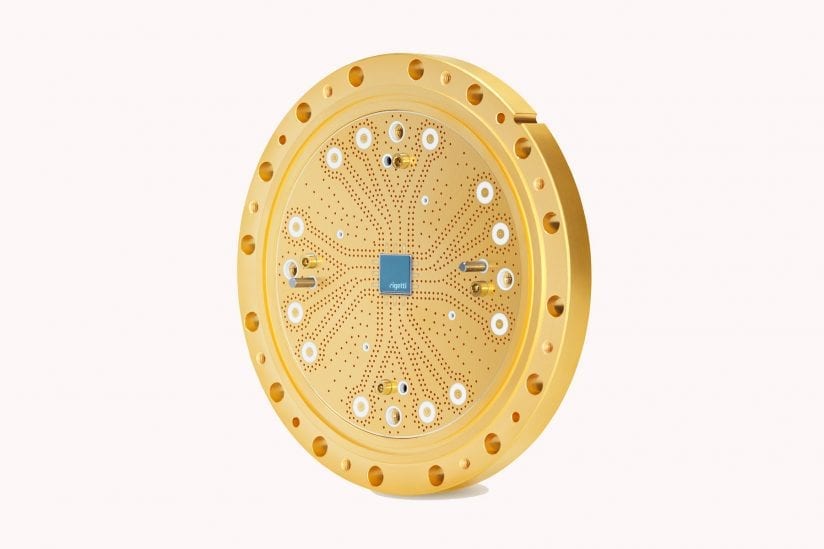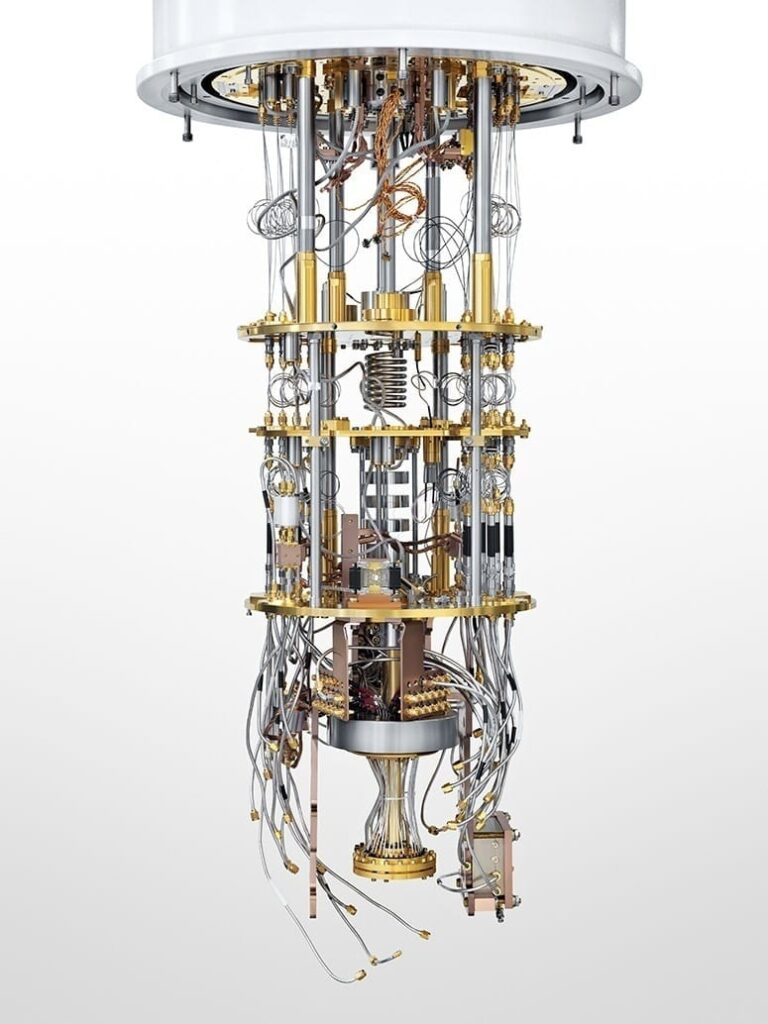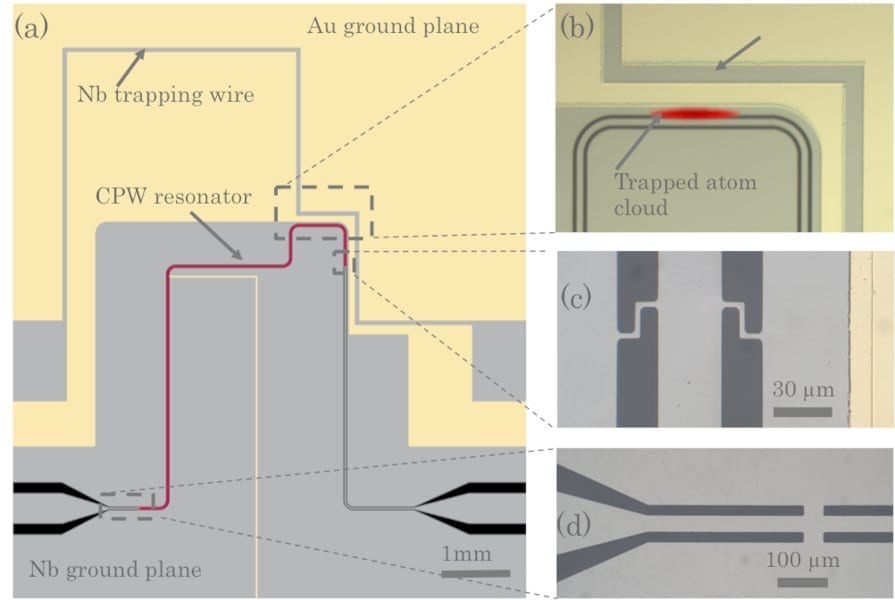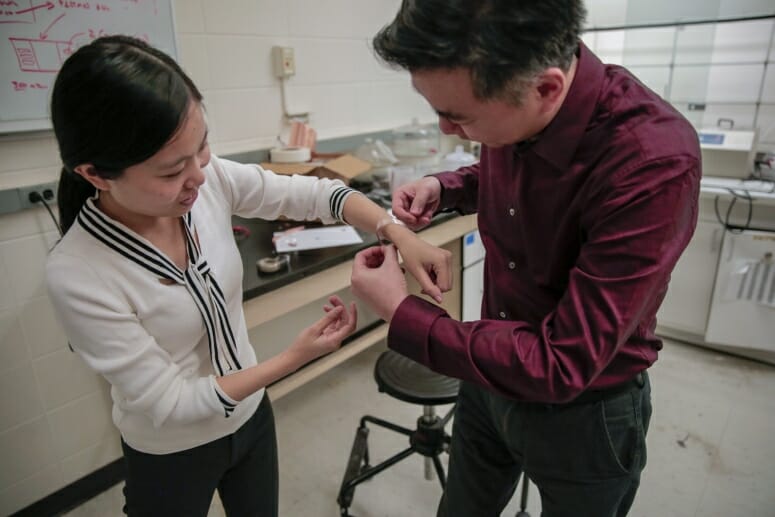
The method has the potential to solve some of society’s biggest challenge
USC scientists have demonstrated a theoretical method to enhance the performance of quantum computers, an important step to scale a technology with potential to solve some of society’s biggest challenges.
The method addresses a weakness that bedevils performance of the next-generation computers by suppressing erroneous calculations while increasing fidelity of results, a critical step before the machines can outperform classic computers as intended. Called “dynamical decoupling,” it worked on two quantum computers, proved easier and more reliable than other remedies and could be accessed via the cloud, which is a first for dynamical decoupling
The technique administers staccato bursts of tiny, focused energy pulses to offset ambient disturbances that muck sensitive computations. The researchers report they were able to sustain a quantum state up to three times longer than would otherwise occur in an uncontrolled state.
“This is a step forward,” said Daniel Lidar, a professor of electrical engineering, chemistry and physics at USC and director of the USC Center for Quantum Information Science and Technology. “Without error suppression, there’s no way quantum computing can overtake classical computing.
The results were published in the journal Physical Review Letters. Lidar is the Viterbi Professor of Engineering at USC and corresponding author of the study; he led a team of researchers at CQIST, which is a collaboration between the USC Viterbi School of Engineering and the USC Dornsife School of Letters, Arts and Sciences. IBM and Bay Area startup Rigetti Computing provided cloud access to their quantum computers.
Quantum computers are fast but fragile
Quantum computers have the potential to render obsolete today’s super computers and propel breakthroughs in medicine, finance and defense capabilities. They harness the speed and behavior of atoms, which function radically different than silicon computer chips, to perform seemingly impossible calculations.
Quantum computing has the potential to optimize new drug therapies, models for climate change and designs for new machines. They can achieve faster delivery of products, lower costs for manufactured goods and more efficient transportation. They are powered by qubits, the subatomic workhorses and building blocks of quantum computing.
But qubits are as temperamental as high-performance race cars. They are fast and hi-tech, but prone to error and need stability to sustain computations. When they don’t operate correctly, they produce poor results, which limits their capabilities relative to traditional computers. Scientists worldwide have yet to achieve a “quantum advantage” – the point where a quantum computer outperforms a conventional computer on any task.
The problem is “noise,” a catch-all descriptor for perturbations such as sound, temperature and vibration. It can destabilize qubits, which creates “decoherence,” an upset that disrupts the duration of the quantum state, which reduces time a quantum computer can perform a task while achieving accurate results.
Noise and decoherence have a large impact and ruin computations, and a quantum computer with too much noise is useless.
Daniel Lidar
“Noise and decoherence have a large impact and ruin computations, and a quantum computer with too much noise is useless,” Lidar explained. “But if you can knock down the problems associated with noise, then you start to approach the point where quantum computers become more useful than classic computers.”
USC research spans multiple quantum computing platforms
USC is the only university in the world with a quantum computer; its 1098-qubit D-Wave quantum annealer specializes in solving optimization problems. Part of the USC-Lockheed Martin Center for Quantum Computing, it’s located at USC’s Information Sciences Institute. However, the latest research findings were achieved not on the D-Wave machine, but on smaller scale, general-purpose quantum computers: IBM’s 16-qubit QX5 and Rigetti’s 19-qubit Acorn.

To achieve dynamical decoupling (DD), the researchers bathed the superconducting qubits with tightly focused, timed pulses of minute electromagnetic energy. By manipulating the pulses, scientists were able to envelop the qubits in a microenvironment, sequestered – or decoupled – from surrounding ambient noise, thus perpetuating a quantum state.
“We tried a simple mechanism to reduce error in the machines that turned out to be effective,” said Bibek Pokharel, an electrical engineering doctoral student at USC Viterbi and first author of the study.
The time sequences for the experiments were exceedingly small with up to 200 pulses spanning up to 600 nanoseconds. One-billionth of a second, or a nanosecond, is how long it takes for light to travel one foot
For the IBM quantum computers, final fidelity improved threefold, from 28.9 percent to 88.4 percent. For the Rigetti quantum computer, final fidelity improvement was a more modest 17 percent, from 59.8 to 77.1, according to the study. The scientists tested how long fidelity improvement could be sustained and found that more pulses always improved matters for the Rigetti computer, while there was a limit of about 100 pulses for the IBM computer.
Overall, the findings show the DD method works better than other quantum error correction methods that have been attempted so far, Lidar said.
“To the best of our knowledge,” the researchers wrote, “this amounts to the first unequivocal demonstration of successful decoherence mitigation in cloud-based superconducting qubit platforms … we expect that the lessons drawn will have wide applicability.”
High stakes in the race for quantum supremacy
The quest for quantum computing supremacy is a geopolitical priority for Europe, China, Canada, Australia and the United States. Advantage gained by acquiring the first computer that renders all other computers obsolete would be enormous and bestow economic, military and public health advantages to the winner.
Congress is considering two new bills to establish the United States as a leader in quantum computing. In September, the House of Representatives passed the National Quantum Initiative Act to allocate $1.3 billion in five years to spur research and development. It would create a National Quantum Coordination Office in the White House to supervise research nationwide. A separate bill, the Quantum Computing Research Act by Sen. Kamala Harris, D-Calif., directs the Department of Defense to lead a quantum computing effort.
“Quantum computing is the next technological frontier that will change the world and we cannot afford to fall behind,” Harris said in prepared remarks. “It could create jobs for the next generation, cure diseases and above all else make our nation stronger and safer. … Without adequate research and coordination in quantum computing, we risk falling behind our global competition in the cyberspace race, which leaves us vulnerable to attacks from our adversaries,” she said.
Learn more: USC scientists find a way to enhance quantum computer performance
The Latest on: Quantum computer
[google_news title=”” keyword=”quantum computer” num_posts=”10″ blurb_length=”0″ show_thumb=”left”]
via Google News
The Latest on: Quantum computer
- 3 Quantum Computing Stocks That Could Be Multibaggers in the Making: April Editionon April 27, 2024 at 11:00 am
Quantum computing technology and applications across sectors are advancing rapidly; the market is predicted to grow over 32% from 2023 to 2030, attracting attention toward multibagger quantum ...
- How Quantum Computers Could Illuminate the Full Range of Human Genetic Diversityon April 26, 2024 at 10:26 am
Pangenomes that incorporate many people’s DNA could capture the breadth of human genetic diversity, and quantum computers may be a key enabler.
- Quantum computing in Colorado could get a multimillion-dollar investmenton April 26, 2024 at 9:00 am
Quantum computing in Colorado could get a massive boost in federal funding this year, to invest in startups, workforce development and laboratory space.
- The Top 3 Quantum Computing Stocks to Buy in April 2024on April 26, 2024 at 4:30 am
InvestorPlace - Stock Market News, Stock Advice & Trading Tips When the largest American bank, JPMorgan Chase (NYSE:JPM), starts investing ...
- 3 Quantum Computing Stocks to Buy on the Dip: April 2024on April 26, 2024 at 3:30 am
Quantum computing is poised to revolutionize various industries and greatly impact society due to its immense computational power. Unlike classical computers, quantum computers can perform complex ...
- Quantum Computing Meets Genomics: The Dawn of Hyper-Fast DNA Analysison April 26, 2024 at 2:13 am
A new project unites world-leading experts in quantum computing and genomics to develop new methods and algorithms to process biological data. Researchers aim to harness quantum computing to speed up ...
- Japan Tightens Export Controls on More Chip and Quantum Techon April 26, 2024 at 1:38 am
Japan said it plans to expand restrictions on exports of four technologies related to semiconductors or quantum computing, the latest in a global push to control the flow of strategic tech.
- Why Your Company Needs To Assess Its Quantum Computing Vulnerabilities Nowon April 25, 2024 at 7:22 am
Although current knowledge causes most companies to expect that cybersecurity vulnerability and threats from quantum computing will be way out in the future, those expectations are incorrect.
- 3 Quantum Computing Stocks to Buy Now: Q2 Editionon April 22, 2024 at 8:52 am
InvestorPlace - Stock Market News, Stock Advice & Trading Tips AI stocks have overshadowed other emerging technologies, including quantum ...
via Bing News










